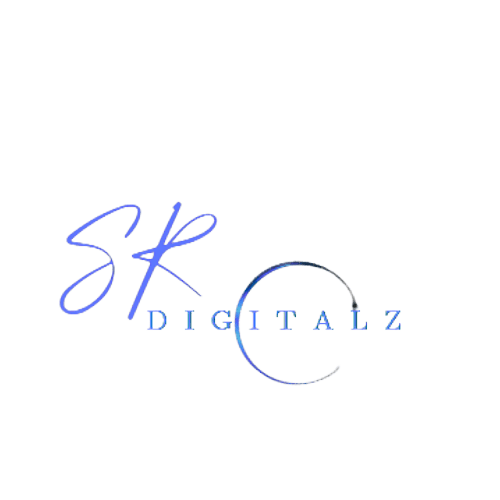Top 10 Marketing Automation Tools for 2024: Which One Is Right for You?
Marketing automation has changed the game for organizations in the fast-paced digital age by enabling them to scale effectively and automate their marketing activities. Marketing automation technologies may boost productivity, reduce lead nurturing time, and save you money regardless of the size of your business. We’ll examine the Top 10 Marketing Automation Tools for 2024 in this blog and assist you in selecting the one that’s best for your company.

The Rise of Marketing Automation in 2024
As 2024 approaches, marketing automation will undoubtedly be essential for companies. Automation technologies are more potent than ever because to the increasing integration of AI and machine learning into marketing software. Companies are depending more and more on these platforms to manage monotonous jobs so that their staff may concentrate on strategy and innovation.
What to Look for in a Marketing Automation Tool?
There are a few important things to think about while selecting a marketing automation tool:
- Ease of Use: You can avoid hours of irritation by using a product that is simple to use and intuitive.
- Scalability: Make sure the instrument can develop along with your company.
- Search for platforms that easily interact with the applications you already use, such as email, social networking, and CRM.
- Features of Automation: Evaluate the extent of automation capabilities, ranging from lead scoring to email marketing.
- Customer service: When resolving problems, dependable service is crucial.
Top 10 Marketing Automation Tools for 2024
1. HubSpot
One of the most well-liked and adaptable marketing automation platforms is HubSpot. Because of its all-in-one features and user-friendly interface, it’s ideal for organizations of all sizes.
- Best Features: The best features include a free edition with lots of capabilities, CRM connectivity, and thorough analytics.
- Pros: Simple to use and excellent for inbound marketing.
- Cons: As you scale, it may get expensive.
2. ActiveCampaign
ActiveCampaign is well-known for its robust CRM and email marketing tools. It works especially well for small and medium-sized enterprises.
- Best Features:Workflow automation, CRM, and sophisticated email segmentation.
- Pros: Strong email marketing and highly configurable automation are the pros.
- Cons: Learning curve for beginners.
3. Marketo
Marketo, a formidable force in the field of marketing automation that is geared at larger businesses, is owned by Adobe.

- Best Features: The account-based marketing (ABM), analytics, and advanced lead nurturing features are the best aspects.
- Pros: All-inclusive marketing solution ideal for big groups.
- Cons: Expensive and difficult to use.
4. Pardot
For B2B businesses, Salesforce’s Pardot product is perfect as it smoothly connects with the CRM.
- Best Features: The best features are the dynamic content, ROI reporting, and lead scoring.
- Pros: Very specialized for B2B, great for Salesforce users.
- Cons: Expensive; Salesforce is needed.
5. GetResponse
GetResponse is a comprehensive solution for small businesses because it combines email marketing, webinars, and landing pages.
- Best Features: The most user-friendly landing page builder, sophisticated email automation, and webinar hosting are its best features.
- Pros: Reasonably priced, excellent for small enterprises.
- Cons: Limited advanced features.
6. Mailchimp
Over the years, Mailchimp, a well-known platform for email marketing, has evolved into full marketing automation.
- Best Features: The best features are the reporting, social media connection, and straightforward automated routines.
- Pros: Simple setup and a free tier are offered.
- Cons: Not as many automation features as some competitors.
7. Keap (Infusionsoft)
Keap, formerly known as Infusionsoft, is made for small businesses who want comprehensive automation and CRM capabilities all in one.
- Best Features: Lead scoring, sales funnel automation, and CRM connectivity are the best features.
- Pros: Simple to run and excellent for small enterprises.
- Cons: The cost of advanced features can be considerable.
8. Sendinblue
Due of its affordability and ease of use, Sendinblue is a great option for small and medium-sized organizations.
- Best Features: CRM tools, email automation, and SMS marketing.
- Pros: GDPR compliant and affordable.
- Cons: Is missing a few sophisticated automation features.
9. Omnisend
With its integrations with Shopify and WooCommerce, Omnisend is designed with eCommerce enterprises in mind.
- Best Features: The best features are the extensive eCommerce connectors, automated workflows, and SMS and email marketing.
- Pros: Perfect for eCommerce, easy-to-use.
- Cons: Few functions not specifically related to eCommerce.
10. Drip
For eCommerce companies, Drip is a feature-rich marketing automation platform that emphasizes using personalization to increase consumer engagement.
- Best Features: The best features include lead scoring, multi-channel marketing, and behavior-based automation.
- Pros: Excellent for advanced customization and eCommerce.
- Cons: May be costly for startups or smaller companies.
Which Marketing Automation Tool is Right for You?
Think about the following before selecting the appropriate tool:
- Budget: While HubSpot and Marketo are preferable for larger budgets, tools like Mailchimp and GetResponse are more reasonably priced.
- Business Size: While Marketo or Pardot may be preferred by firms, smaller businesses may find Keap or ActiveCampaign to be ideal.
- Industry: E-commerce? Consider Omnisend or Drip. B2B? Investigate Pardot.

Benefits of Using Marketing Automation Tools
- Increased Productivity: By automating tedious operations, you can dedicate more time to strategy.
- Improved Lead Nurturing:Customized automation maintains audience interest.
- Data-Driven Decisions: Extensive analytics assist in optimizing your marketing plan.
Challenges of Marketing Automation
- Overuse of automation: Maintain your human element.
- First Setup: The implementation of certain tools can be difficult.
- Cost: More expensive models frequently include more advanced features.
The Future of Marketing Automation
In 2024, anticipate increased AI-powered personalization, expanded customer insights, and the incorporation of new channels like chatbots and voice assistants.
Conclusion
In 2024, marketing automation solutions will become indispensable for companies hoping to expand. Whether you’re a tiny business or a giant organization, there’s a product out there that can help you automate processes, nurture leads, and enhance conversions.
FAQs
- What is the best marketing automation tool for small businesses?
Small businesses can benefit greatly from ActiveCampaign and Keap because of their cost-effectiveness and intuitive user interfaces. - Is HubSpot worth the price?
Although it can get pricey as you grow, HubSpot is perfect for companies that want a comprehensive platform for sales, marketing, and customer support. - Can I use marketing automation for social media?
Yes, a lot of applications provide functionality for scheduling and integrating social media, such as HubSpot and Mailchimp. - Is marketing automation only for large businesses?
No, Sendinblue and GetResponse are only two examples of the many reasonably priced marketing automation solutions available to small businesses. - How long does it take to see results with marketing automation?
While long-term success typically takes months, you may see results in a few weeks depending on your strategy.







